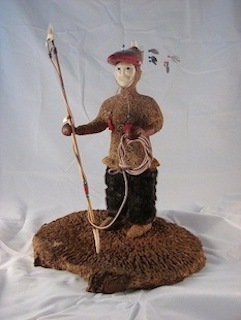Brendan I. Koerner's Blog, page 29
January 5, 2012
Decimal Points

I should have mentioned long ago that noted Microkhan ally Nathan Thornburgh has launched a new project near-and-dear to my heart: Roads & Kingdoms, a site that operates under the hard-to-resist motto "Journalism, travel, food, murder, music." The first several weeks' worth of posts have focused exclusively on Burma, where Nathan and his co-creator traveled late last year. To their great credit, they made it all the way up to Myitkyina, a scrappy town that makes an important cameo in Now the Hell Will Start. Their photos and stories from up that way are pretty dang awesome.
But Roads & Kingdoms isn't just about on-the-ground reporting; Nathan and his crew also delve into the data on occasion, such as in this great riff on the lethality of Burma's highways and byways. The actuary in me loved this bit:
The dry genius of the ADB-ASEAN cost estimate is that it includes estimates for grief and human suffering in the aftermath of an accident. That's $1,800 in societal grief for every death, $842 for a serious injury accident, $8.28 for a slight injury accident.
I keep on wondering how they tacked on that twenty-eight cents to the minory-injury estimate. And, more important, the factors that affect how those sorts of figures translate to more developed nations. Do the bean counters assume that grief is greater in places where violent death is rarer? Or are assumptions not part of the process here, and there is some sort of griefometer that automates the gathering of data?
January 4, 2012
Kafka in Seattle
Amid all the wearying hullabaloo over the Iowa caucus, the passing of a major figure in American history seemed to have slipped off the radar. Gordon Hirabayashi, who died at 93 on Monday, was one of a small handful of Japanese-Americans to legally contest the Roosevelt Administration's internment policy—a policy that, in this project's humble opinion, was a national shame of the highest order. The 1943 New York Times piece (PDF) recounting the failure of Hirabayashi's lawsuit against the federal government did a good job of explaining his Kafkaesque situation:
Hirabayashi, born in Seattle twenty-five years ago was a senior at the University of Washington and had never been in Japan, whence his parents came. He was sentenced to serve three months for violating the curfew regulation and three months for failing to register for evacuation from the military area.
So much for the promise that anyone can reinvent themselves as an American. And yet Hirabayashi never lost faith that the internment scandal was just as an aberration, summing up his attitude in a quote that deserves to be remembered for the ages:
I was able to hold my head up high, because I wasn't objecting and saying "no," but was saying "yes" to a prior principle, the highest of principles.
Hirabayashi was finally vindicated over four decades later, when a federal appeals court overturned his conviction. Today, the righteousness of his legal cause seems every bit as obvious as the propagandistic Superman cartoon above seems cheesy. But let's hope it doesn't fade from memory should there be another public debate over the relative merits of expediency and basic civil rights.
January 3, 2012
Monkey with the Lingo
Among the many bizarre books I've been reading for research purposes, few are stranger than Eldridge Cleaver's Soul on Fire, the former Black Panther bigwig's account of becoming a born again Christian in the late 1970s. Cleaver spends much of the book repudiating the Communist allies who once supported him, including the North Korean dictator Kim Il-sung. To make clear his break from the past, Cleaver goes to great lengths to lampoon North Korean culture; this comical detail from Pyongyang is perhaps my favorite:
You could not say "Good Morning" or "Hello" to [the North Koreans] without their responding: "Yes, it is a beautiful day, thanks to the inspired teaching of our beloved revolutionary leader, Comrade Kim Il Sung, who has filed our lives with the truths of Marxist-Leninist analysis and daily supports our burdens and obligations." That was good morning, and after six months it began to lose its novelty, but not the power to bore.
That passage reminded me of the Communist realm's strange obsession with overhauling basic greetings. I first encountered this in the Czech Republic some years back, when it was explained to me that some old-timers still couldn't stop saying "Honor work!" in lieu of "Goodbye." (More on that phrase's slow demise here.) As noted on Microkhan before, one must always be deeply suspicious of political movements that seek to revamp the minutiae of daily life. Even in the most dire of societies, the means of saying "hello" and "farewell" probably aren't rotten to the core.
December 30, 2011
Make No Small Plans
Thanks to all who patronized Microkhan this year, and hope you'll stick around for the next 366 days (at least). Big plans for the forthcoming year, including some special longform projects, the revival of our long-lost "Bulletproof" series, and, of course, an increasing amount of clues and extras related to the next book. Stay with me, dear readers—gonna make this all worth your while.
December 29, 2011
Talk About Missing the Point

Wladyslaw Kozakiewicz has long resided high atop my list of all-time athletic badasses, and not just because he mastered the most technically difficult event in all of track-and-field. When the Polish Kozakiewicz took gold in the pole vault at the 1980 Olympics, he did so in front of a hostile Moscow crowd that was pulling for local favorite Konstantin Volkov. When the Pole cleared the winning height, he fired back at the crowd with the famously rude gesture depicted above—a gesture that many Poles interpreted as a show of defiance against their country's Soviet masters. It was, in effect, Poland's version of the Black Power salute, a moment in which the political briefly invaded the supposed sanctuary of Olympic sport.
Contrary to most accounts of Kozakiewicz's gesture, the pole vaulter did not immediately split for the West in order to avoid persecution at home. In fact, it took him another five years to defect to West Germany, a move that evidently shocked the Polish elite. Their expressions of consternation over Kozakiewicz's move tell you all you need to know about Soviet myopia:
"I don't understand why Olympic champion Wladyslaw Kozakiewicz asked for political asylum in West Germany," Witold Dunski, a leading sports columnist, wrote in an article.
"All doors were open for him here," he said. "He was not starving. He had a beautiful house on land presented to him by the town authorities, a house of dreams, unattainable for the average Pole."
The writer apparently did not stop to consider that Kozakiewicz had become disillusioned with a system that made slightly better-than-average comforts wholly unattainable for "the average Pole."
Video of Kozakiewicz's Olympic-winning vault here, gesture included. And a very recent Polish-language interview with the man here. He still sounds like quite the firecracker, even via Google Translate.
December 27, 2011
Goals and Problems
Trying to take advantage of the slow week to hit my book-writing goal: 50,000 words by the time I knock off for lobster and ale on New Year's Eve. So far today, I have managed to…get to the corner mailbox to return some Netflix DVDs. Not a promising start.
December 23, 2011
The Christmas Fake-Out

Put yourself in the shoes of a G.I. slogging his way across Italy or New Guinea in December 1943. You've been subsisting on tinned ham and cold coffee for days; your feet are bleeding; your best friend took a bullet to the skull on Thanksgiving. The last thing in the world you want to think about is the lovely, peaceful Christmas your people back home are preparing to enjoy. And then a leaflet like this or this comes raining out of the sky. The literature is obviously designed to make you second-guess your commitment to the Allied cause. But does it?
I'm fascinated by this collection of fake Christmas cards of wars past because the psychological concept behind them seems so shaky. The messages were obviously designed to push fatigued soldiers over the edge, by reminding them of all the familial comforts they were missing. But that approach to propaganda strikes me as laughably simplistic—if anything, I would think most American soldiers would take offense at the co-optation of their favorite holiday for such nefarious purposes. Also, even in the age before mass media, wouldn't the mendacity of an image like this be apparent to even the most unaware G.I.? The attempt at changing the narrative seems terribly transparent.
I will confess, however, that I admire some of the artistic skill on display in the fake Christmas cards distributed by the Vietcong. Whoever they got to churn out the drawings did a nicely Cubist version of Santa Claus.
December 22, 2011
"Very Big in Europe This Season"
Invoking the khan's prerogative to spend a day focusing on the book. But let's be honest: Is there really anything I could write that would be as glorious as Lorenzo Lamas in an early '80s Breakin' knock-off? Methinks the answer is "no."
December 21, 2011
Seizing the Narrative
 It's fair to say this has been a momentous week for Willie Gault, the former Chicago Bears wideout who was also a track star of great renown. Things started off great when police in Los Angeles found his stolen Super Bowl ring, but then took a turn for the worse—the much, much worse—after news emerged that he was being targeted by the SEC for fronting a pump-and-dump stock swindle.
It's fair to say this has been a momentous week for Willie Gault, the former Chicago Bears wideout who was also a track star of great renown. Things started off great when police in Los Angeles found his stolen Super Bowl ring, but then took a turn for the worse—the much, much worse—after news emerged that he was being targeted by the SEC for fronting a pump-and-dump stock swindle.
To be frank, nothing about the latter revelation surprises me much, given what I learned from this 1986 profile of the man, yet another Sports Illustrated classic that helped steer me into the writing trade. One of the story's opening anecdotes regards Gault's efforts to put together that celebrated Super Bowl Shuffle video, a project that he may not have exactly done out of the goodness of his own heart:
There are still some players who think Gault's best song and dance may have been the one he did to get them to Shuffle along at a net of only about $6,000 a man, after their donations. After the Illinois attorney general's office launched an inquiry last January, Meyer registered the project as a charitable endeavor under state law. Some of the Bears accused Gault of getting them involved in a slick hustle, and worse, of lining his own pockets at their expense. "The guys were saying Willie was just doing it because he was getting money under the table," says Dainnese Gault. "That hurt him. That was a job, getting all those guys together with all those egos. He had to literally drive the Fridge, Walter Payton and Jim McMahon down to that studio. I told Willie he should take more money than the rest of them for all the work he did."
Gault says he didn't, but others weren't so sure. "They sold almost a million records and 170,000 videos, and we got $6,000," said Bears linebacker Otis Wilson. "Wouldn't you feel screwed?"
Wilson still seems convinced that Gault is the Baryshnikov of bunco artists. "Put it this way," says Wilson. "If I had to trust him with my life or my wife, I wouldn't trust him with either one."
What I remember even more vividly than the profile, though, was this critical letter to the editor that appeared in the magazine a few weeks later:
Bruce Newman missed the boat in his reporting of an interview with me and my wife, Dainnese (Gault Is Divided Into Many Parts, Nov. 24). For example, he neglected to report on the most emphasized and important aspect of my wife's and my life—God. Instead, he has painted a picture of a man who is quite the opposite of the man that I am.
WILLIE GAULT
Wilmette, Ill.
At the time, my little grade-school mind was blown by the conflict between writer and athlete. Did this mean that magazine stories weren't wholly accurate reflections of reality? That writers sometimes stretched the truth in order to spin a better yarn? Or perhaps that some profile subjects didn't like to see their greatest failings revealed for all to see, especially after they invested such great care in crafting their public facades.
Given what has gone down in Gault's post-football career, including his dalliance with a certain money-making enterprise even bigger than his alleged stock scheme, I now tend to view that letter as the work of a man whose ego rules everything around him. I would have more sympathy if he'd at least made a nod to the brilliance of the story's headline, "Gault is Divided Into Many Part," a delectable play on a Julius Caesar quip.
December 20, 2011
Only the Lonely
 While in Pittsburgh last week, I had a chance to catch up with an old friend who's now an archaeology professor. He just returned to the Lower 48 after four years in Alaska, where he spent much of his time digging up the artifacts left behind by ancient inhabitants of the Aleutian Islands. On our third pint of the evening, the conversation turned to whale hunting, which I've always understood to be an essential part of Native Alaskan culture. My pal confirmed that this was the case, but added a new twist with which I was previously unfamiliar: the role of shamanism in the slaying of cetaceans.
While in Pittsburgh last week, I had a chance to catch up with an old friend who's now an archaeology professor. He just returned to the Lower 48 after four years in Alaska, where he spent much of his time digging up the artifacts left behind by ancient inhabitants of the Aleutian Islands. On our third pint of the evening, the conversation turned to whale hunting, which I've always understood to be an essential part of Native Alaskan culture. My pal confirmed that this was the case, but added a new twist with which I was previously unfamiliar: the role of shamanism in the slaying of cetaceans.
For the Alutiiq people, whale hunting was not a communal activity. It was, instead, an activity pursued by loners reputed to have mystical powers, whose mastery of this arcane and lethal art condemned them to lifetimes of isolation. A Russian missionary of the 1880s provided a description of how, exactly, these shamans managed to take down whales despite their utter lack of metallurgical technology:
The pursuit of whales was encumbered witli many observances and superstitions. The spear-heads used in hunting the whale were greased with human fat, or portions of human bodies were tied to them, obtained from corpses found in burial caves, or portions of a widow's garments, or some poisoned roots or weed. All such objects had their own special properties and influence, and the whalers always kept them in their bidarkas. The hunter who launched a spear provided with such a charm upon a whale at once blew upon his hands, and having sent one spear and struck the whale, he would not throw again, but would proceed at once to his home, separate himself from his people in a specially-constructed hovel, where he remained three days without food or drink, and without touching or looking upon a female. During this time of seclusion he snorted occasionally in imitation of the wounded and dying whale, in order to prevent the whale struck by him from leaving the coast. On the fourth day he emerged from his seclusion and bathed in the sea, shrieking in a hoarse voice and beating the water with his hands. Then, taking with him a companion, he proceeded to the shore where he presumed the whale had lodged, and if the animal was dead he commenced at once to cut out the place where the death-wound had been inflicted. If the whale was not dead the hunter once more returned to his home and continued washing himself until the whale died.
I am impressed not only by the bravery required to confront a whale armed with nothing more than a poison-tipped sliver of shale, but by the mental fortitude it took to live this hermit-like lifestyle. I have to wonder why anyone would volunteer for this service, knowing that, at best, they would die alone in a frozen cave, and then have their body cannibalized by the next whale shaman. My friend suggests that this life was not a choice, but rather something that was thrust upon young men deemed eccentric by their villages—perhaps due to what we today would call mental illness.
More on Alutiiq whale shamanism here, including the petroglyphs that the hunters created in their ample spare time.




